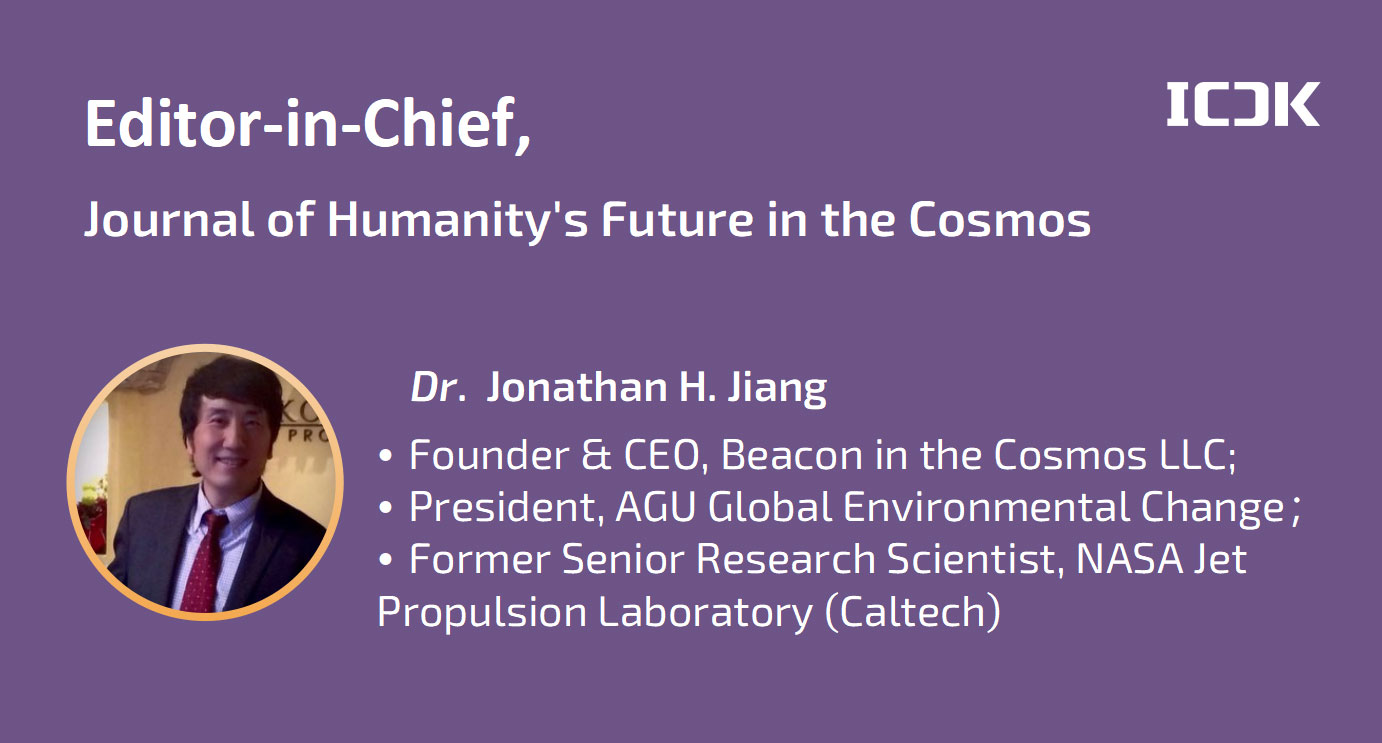It is with great pleasure that we announce Dr. Jonathan H. Jiang, Founder & CEO, Beacon in the Cosmos LLC, United States, as the Founding Editor-in-Chief for Journal of Humanity's Future in the Cosmos (JHFC). We believe Dr. Jiang will lead JHFC forward with inspiration and rigor, advancing the scholarly exploration of humanity’s future in the cosmos.

Founding Editor-in-Chief, Journal of Humanity's Future in the Cosmos
Founder & CEO, Beacon in the Cosmos LLC
Email: [email protected] | Tel: +1-818-530-3023
Dr. Jonathan H. Jiang is a former Senior Research Scientist at the NASA Jet Propulsion Laboratory, California Institute of Technology. His research spans astrophysics, atmospheric dynamics, climate processes, planetary habitability, and humanity’s future in the cosmos. He currently serves as President of the AGU Global Environmental Change Section and has previously served as Editor of Earth and Space Science and Editor-in-Chief of the Earth and Space Science Open Archive. Dr. Jiang has received the NASA Exceptional Scientific Achievement Medal and two NASA Exceptional Achievement Medals and is a Fellow of the American Meteorological Society. He is the founder and CEO of Beacon in the Cosmos LLC, a venture dedicated to inspiring the next generation of explorers. He holds a Ph.D. in Atmospheric Science from York University (Toronto, Canada) and is the author of Avoiding the Great Filter: Illuminating Pathways to Humanity’s Future in the Cosmos.

